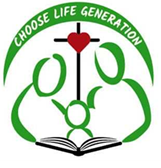As part of the ongoing campaign to fight the normalization of sexual violence in the conflict-affected North West and South West regions of Cameroon, journalists and media personnel were trained to become advocates for survivors of rape and sexual abuse. These media professionals were equipped with knowledge on gender-based violence (GBV), legal frameworks, survivor-centered reporting, and responsible storytelling aimed at amplifying the voices of victims while preserving their dignity.
This media-focused initiative was driven by alarming statistics and urgent humanitarian concerns. According to the United Nations, between February and December 2020, a staggering 4,300 incidents of sexual and gender-based violence (SGBV) were documented across the two regions. Nearly 50% of these cases involved sexual or physical assault or rape, and over 30% of the victims were children.
In stark contrast, the previous year (2019) recorded 1,065 cases, including 289 instances of sexual assault or rape—showing a dramatic and distressing increase within just one year.
The Ebam Massacre: A Case That Shocked the Nation
One of the most egregious incidents of sexual violence during this period was documented by Human Rights Watch (HRW) in a report titled “Cameroon: Survivors of Military Assault Await Justice”.
On March 1, 2020, Cameroonian soldiers attacked the village of Ebam in Manyu Division, South-West Region. The HRW report revealed the following atrocities:
-
At least 20 women were raped, including four women with disabilities
-
35 men were arrested, and one man was killed
-
Soldiers looted dozens of homes, burned one house, and severely beat those they detained
-
No credible investigation has been conducted, and no one has been held accountable
A chilling testimony from a 40-year-old woman who survived the assault underscores the horror of that night:
“Five masked soldiers entered my home. It was dark, and I was alone. They searched the house and stole my phone and money. One of them abused me. He said: ‘If you don’t have sex with me, I will kill you!’ I was too afraid to say or do anything. After the rape, I ran into the bush where I spent two months. I am still upset and traumatized.”
Full report: Human Rights Watch – Cameroon: Survivors of Military Assault Await Justice
Impact of the Media Training and Advocacy Campaign
After just six months of implementation, the project recorded significant success, notably:
-
Journalists across regional and national platforms began sensitizing the public through radio, television, print, and digital channels
-
Survivors’ stories were shared in ethical and empowering ways, raising awareness and reducing stigma
-
The media has become a strong ally in holding perpetrators accountable and calling for justice
This campaign reflects the critical role of media in advocacy, helping communities break the silence surrounding sexual violence and creating a platform for justice, healing, and prevention.

